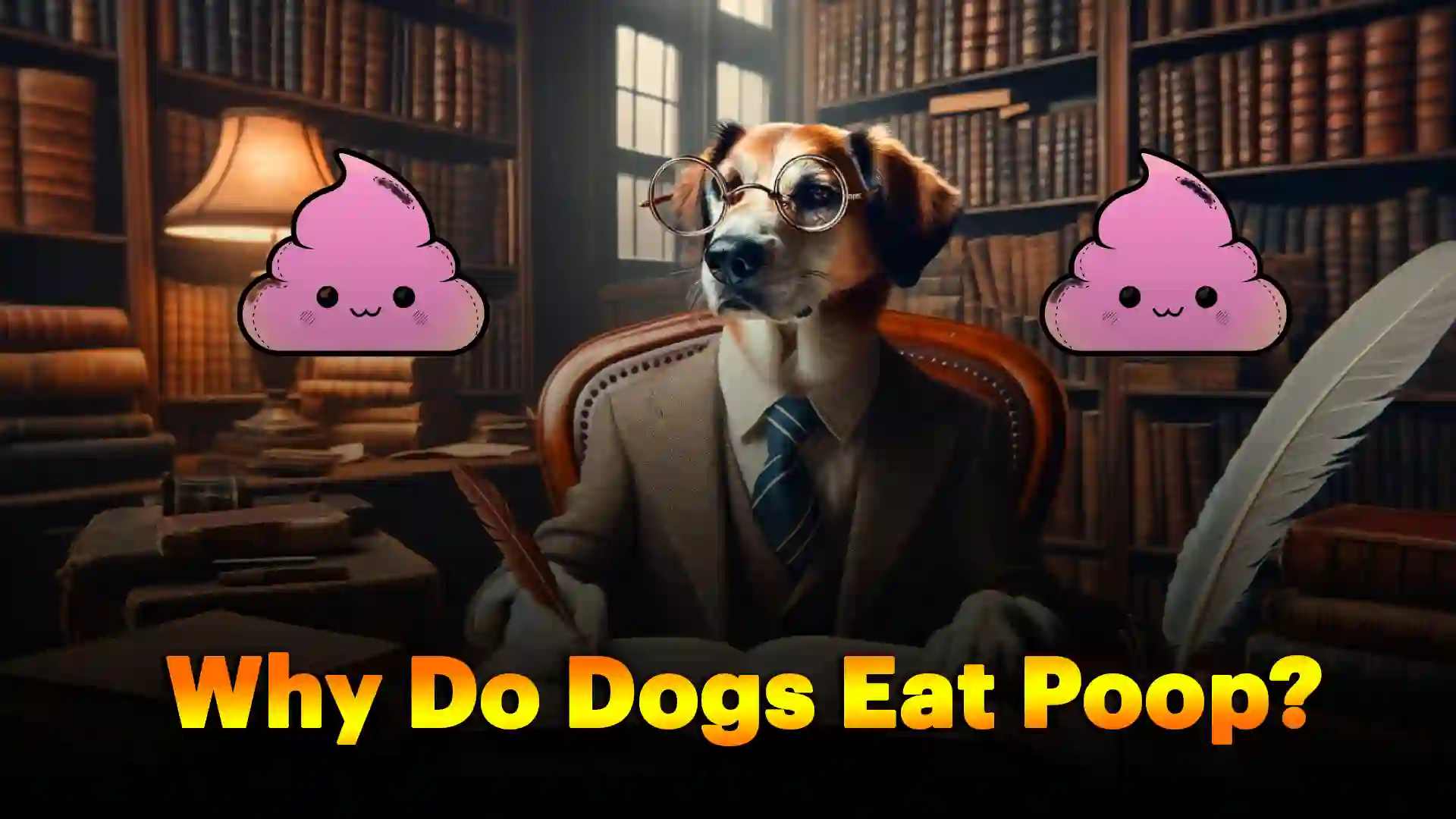Have you ever caught your furry friend munching on something that makes you cringe and wonder, “Why on earth would they eat that?” Yes, I’m talking about that gross habit of dogs eating poop, which is called coprophagia by scientists. It’s definitely not a behavior most of us expect from our beloved pets, but let’s dive into the reasons behind this peculiar habit.
Normal Reasons Why Dogs Eat Poop
Believe it or not, there are some normal scenarios where poop-eating is considered acceptable in the dog world:
1. Nursing Mothers : Nursing female dogs often clean up after their puppies by consuming their feces. It’s a natural instinct to keep the den clean and protect the puppies from potential threats.
2. Instinctual Behavior : According to a 2018 survey, dogs might have inherited this behavior from their wolf ancestors. In the wild, wolves would eat fresh feces to prevent the spread of parasites. So, for dogs, it’s almost like a hygiene routine inherited from their wild relatives.
3. Taste Preferences : Sometimes, dogs find the feces of other animals appealing due to the nutrients it contains. While this might seem gross to us, it’s just a matter of taste for our canine companions.
Abnormal Reasons Why Dogs Eat Poop
However, if your adult dog starts munching on their own or another dog’s poop, it might be a cause for concern. Here are some abnormal reasons behind this behavior:
1. Attention-Seeking : Some dogs may develop the habit of eating poop to grab their owner’s attention. It might have started as a playful act during puppyhood but continued into adulthood as a means of seeking attention.
2. Health Issues : Eating poop could be a sign that your dog is not feeling well. It might indicate underlying health problems such as intestinal parasites, nutritional deficiencies, or gastrointestinal diseases. If you notice this behavior along with other symptoms like weight loss or lethargy, it’s essential to consult your vet.
3. Anxiety : Dogs experiencing anxiety or stress may resort to poop-eating as a displacement behavior. This often happens when they feel confined or isolated, seeking comfort in unusual habits.
4. Fear of Punishment : Dogs might eat their poop out of fear of being punished for accidents. This could be a result of past punishment during potty training, leading them to hide the evidence by consuming it.
How to Address Poop-Eating Behavior
Now that we understand why dogs engage in this behavior, let’s explore some strategies to address it:
1. Positive Reinforcement : Use positive reinforcement techniques to encourage desirable behaviors and discourage poop-eating. Reward your dog with treats and praise when they exhibit appropriate behavior.
2. Environmental Management : Keep your dog’s living area clean and remove any access to feces. Supervise them during walks and promptly clean up after them to eliminate temptation.
3. Training and Redirection : Teach your dog commands like “leave it” and “come” to redirect their attention away from feces. Engage them in activities and provide mental stimulation to prevent boredom and anxiety.
4. Consult with a Vet : If the behavior persists despite your efforts, consult with your veterinarian to rule out any underlying health issues. They can help you figure out what to do and suggest the right things to try.
Conclusion
Just remember, being patient and doing the same things over and over again are really important when you’re trying to help your dog with behavior problems. With the right approach and a little bit of understanding, you can help your furry friend overcome the poop-eating habit and lead a happy, healthy life.

